Local Knowledge Systems and Hazard Forecasting
by Sunil D Santha, P Gahana, and VS Aswin “The manuscript is important because it contains indigenous insights of fisherfolk in Kerala. These indigenous peoples are among the most affected by hazard or change and their knowledge is given voice in this paper. Solely, expert knowledge is simply not sufficient in dealing with wicked problems such as disasters.”
Dr. Karim Aly Kassam, Lead Reviewer
As Prof. Kassam comments, local knowledge sy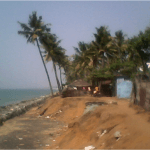 stems are inherent elements of indigenouspeople’s capacity to forecastnatural hazards. This research highlights the potential of local knowledge systems prevalent among traditional fishworkers in Kerala to predict and forecast coastal hazards. This is part of our ongoing effort to develop effective community-based early warning systems. We demonstrate how cooperative forms of inquiry have helped in highlighting the potential of traditional communities in predicting and forecasting hazards.
stems are inherent elements of indigenouspeople’s capacity to forecastnatural hazards. This research highlights the potential of local knowledge systems prevalent among traditional fishworkers in Kerala to predict and forecast coastal hazards. This is part of our ongoing effort to develop effective community-based early warning systems. We demonstrate how cooperative forms of inquiry have helped in highlighting the potential of traditional communities in predicting and forecasting hazards. 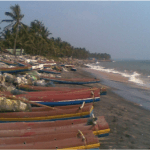 We discovered that coastal hazards among fisherfolk are understood as a holistic phenomenon namely ‘kolu’. It refers to a comprehensive term that encompasses the inter-linkages between various natural events such as strong winds and heavy rains, huge waves, turbulent seas and resulting surges often accompanied by thunder or lightning.
We discovered that coastal hazards among fisherfolk are understood as a holistic phenomenon namely ‘kolu’. It refers to a comprehensive term that encompasses the inter-linkages between various natural events such as strong winds and heavy rains, huge waves, turbulent seas and resulting surges often accompanied by thunder or lightning. 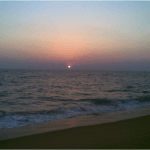 Different types of knowledge spheres exist among fishworkers to predict kolu. These include knowledge pertaining to the behaviour of birds, fish, crabs, conches, prawns, sea-snakes, sea cows, insects and worms; or observation and inferences related to formation of bubbles, colour of the sea, foams, smell, sand, water-flow, waves, clouds, lightning, sun, moon, rainbows, stars and wind. Hazard forecasting in Kerala is still dominated by expert knowledge systems without giving recognition to the knowledge and capacities of traditional fisherfolk. We believe that this participatory inquiry has demonstrated the richness of local knowledge systems that exists among traditional fisherfolk in forecasting coastal hazards.
Different types of knowledge spheres exist among fishworkers to predict kolu. These include knowledge pertaining to the behaviour of birds, fish, crabs, conches, prawns, sea-snakes, sea cows, insects and worms; or observation and inferences related to formation of bubbles, colour of the sea, foams, smell, sand, water-flow, waves, clouds, lightning, sun, moon, rainbows, stars and wind. Hazard forecasting in Kerala is still dominated by expert knowledge systems without giving recognition to the knowledge and capacities of traditional fisherfolk. We believe that this participatory inquiry has demonstrated the richness of local knowledge systems that exists among traditional fisherfolk in forecasting coastal hazards. 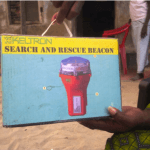
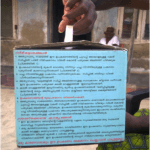 We foresee the need to co-produce knowledge through partnerships between scientists and communities at risk. Nevertheless, the success of such a blended community-based early warning system will depend on how the actors in formal warning appreciate and recognise the relevance of local knowledge systems.
We foresee the need to co-produce knowledge through partnerships between scientists and communities at risk. Nevertheless, the success of such a blended community-based early warning system will depend on how the actors in formal warning appreciate and recognise the relevance of local knowledge systems.
Sunil D Santha
You can access this article for free for the next 30 days by using this link.
After you’ve had a chance to read this piece, please share your thoughts, ideas, or experiences with our community so we can continue this discussion! The AR+ site is hosting a discussion forum for us to talk about our reactions and experiences related this topic. You can access the discussion forum A quick (and free) registration is all that’s needed to join the discussion.
- Making Public Deliberations Inclusive with Mixed Methods AR - October 26, 2020
- Participatory action research with Aboriginal Elders: Ngulluk Koolunga Ngulluk Koort project - October 12, 2020
- Bringing the relational self to ART: Interview with Dr. Yvonne Skipper - October 1, 2020
